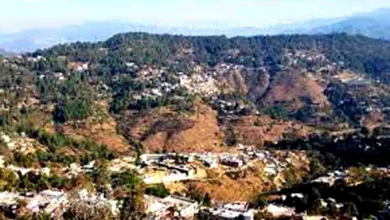Hasty decision?

Monday, 24 May 2021 | Pioneer
Our vaccination drive is sputtering, and now there are doubts over the time gap between the doses
Should the Indian Government reconsider its May 13 decision to increase the gap between Covishield doses to 12-16 weeks? The Government has accepted the recommendation of the technical group to extend the gap from six-eight weeks after reports that the second dose after a longer gap can develop stronger immunity. NITI Aayog member VK Paul said the efficacy of even a single dose was not a problem. A month earlier, Adar Poonawalla of the Serum Institute of India had said the AstraZeneca-Oxford vaccine was 90 per cent effective when the gap was three months. The Indian Government got a shot in the arm when scientist Andrew Pollard, who co-developed the AstraZeneca vaccine with Sarah Gilbert at the Oxford University, said that a three-month interval produces “very good” protection; this gets even better with a longer interval from three to four months. However, within days of India extending the gap, the UK Government, which was earlier following a three-month gap, reduced it to eight weeks. This was done because of concerns that an extended first dose may not be of help against the notorious B.1.617 variant that was first discovered in India. The Financial Times reported using the latest UK data that a single dose “offered 33 per cent protection against symptomatic infection from B.1.617.2 and 51 per cent against B.1.1.7”. These are the mutants of B.1.617. Both doses together reduced this gap in protection to six percentage points, giving 81 per cent protection against B.1.617.2 and 87 per cent against B.1.1.7.
The Cornell University’s Weill Cornell Medicine community said the UK Government’s decision to delay the second dose was controversial and risky and the Indian policy needs “reconsidering”. A virologist of the centre said a single dose does not give enough protection against B.1.617. India is in an unenviable situation as on date. The vaccination for 18+ has either stopped or is at a snail’s pace. There is vaccine shortage in the country since the last week of April. From a total of 2.47 crore vaccinations in the week of April 3-9, it has come down to 92.1 lakh during May 15-21. Of the 19.33 crore people who received vaccination till May 22, only 4.13 crore received both doses. Delhi, for instance, has halted vaccination in the 18-44 age group centres, claiming shortage. Against a demand of 80 lakh doses a month, it got only one-fifth, or 16 lakh doses, in May. Full relief is not available till July end when the SII would have reached ramped up production capacity. And yet, the Government is confident of vaccinating all adults by this year’s end as 16 crore doses would become available in July and 25 crore in October. Where does this confidence emanate from? It may be too soon to say if the delayed dose policy is a definite risk, but there are no second thoughts on the need for scaling up vaccination.






